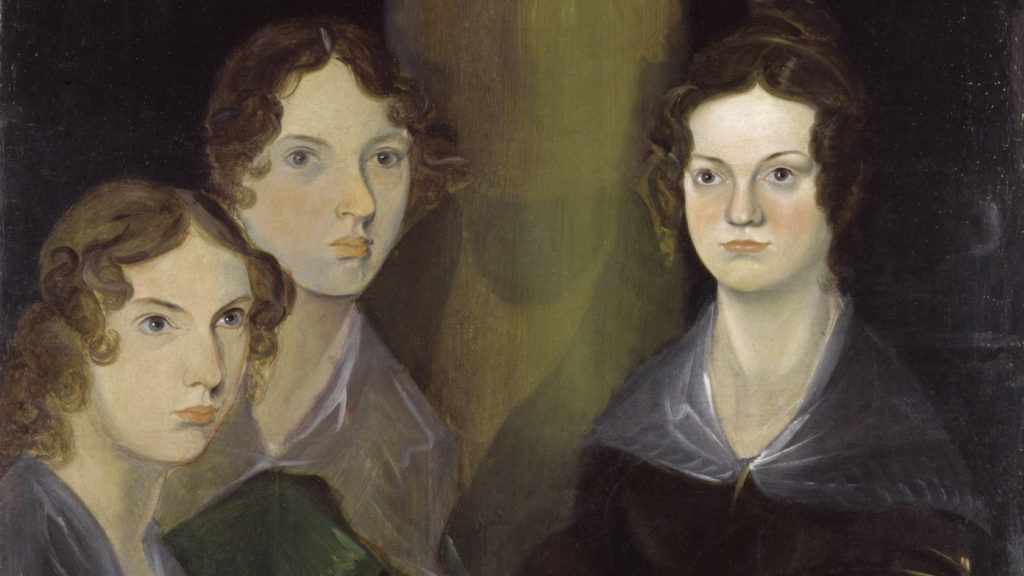Charlotte Brontë’s “Jane Eyre” is one of the best-known novels of the Victorian era and is widely considered one of the best novels of the English language.
Originally published in 1847 under the androgynous pseudonym Currer Bell, the book has never been out of print since.
Brontë came from a notoriously eccentric family that lived in semi-isolation on the Yorkshire moors. Their mother died in childbirth. Patrick Brontë, the father, was a parson who, though nominally loving, left his children very much to their own devices. Amid the moors’ raging winds, driving rain, and gloom, they read voraciously — above all the Bible, but also Sir Walter Scott, Milton, Shakespeare, Thackeray, and the Romantic poets.
Two sisters, Maria and Elizabeth, died at 11 and 10. Branwell, the one male, was an alcoholic and opium addict who died at 31. Emily, author of “Wuthering Heights,” soon followed, as did Anne, also a novelist.
Charlotte outlived them all, dying six years after Anne in 1855, at the age of 38.
The story, for those who don’t know, goes like this. Jane is an orphan whose aunt, Mrs. Reed, the widow of Jane’s maternal uncle, has taken the child in more or less under duress. Jane has no apparent other relations. Mrs. Reed, cruel and unfeeling, chastises, scolds, and shames 10-year-old Jane while spoiling her own insufferable three children, two girls, and a fat, pampered bully, John.
In one way, “Jane Eyre” is the story of the introvert: a reader, a ponderer, a contemplative who studies at great depth human nature and her own heart.
Curious several years later about the master of Thornfield Hall, she queries the household manager about him. Mrs. Fairfax relays what he looks like, his daily habits, his rich and showy friends. “Yes, but what is his character?” Jane wants to know.
Character is what matters to Jane Eyre, and from the beginning, she has it in spades. Plain, outwardly unprepossessing, she’s on the one hand meek, obedient, and quiet. On the other hand, she flashes with fire at injustice and, having been sent away to boarding school, as her carriage drives away, shouts at Mrs. Reed that she is a low, uncharitable person and that when she, Jane, grows up, she will broadcast the fact to the whole world.
Lowood, the school, is run by the tyrannical and hypocritical Mr. Brocklehurst, who shows off his three daughters, dripping with feathered hats and furs, to the underprivileged students who are starving, freezing, and forcibly shorn of anything resembling a curl.
Here Jane meets Helen Burns, another reader and thinker who, like readers and thinkers everywhere, is mercilessly persecuted by the powers-that-be. Again, Jane burns with indignation, but the Christ-like Helen counsels patience, forbearance, and turning the other cheek. As Helen dies of tuberculosis, Jane sneaks up to her quarantined bedroom and holds her in her arms as she dies.
Graduating at the head of her class, Jane becomes a teacher at Lowood for eight years, then finds employment as a governess at Thornfield Hall, which — along with seemingly boundless tracts of surrounding land — is owned by the brusque and enigmatic Edward Rochester.
Modern commentators tend to style Jane as a second-wave feminist, a political activist, a transgressor of sexual and gender boundaries.
In fact, she’s a devout Christian — in all the very best senses of the word. “Jane Eyre” is really the story of the moral redemption of Mr. Rochester: guided, fervently prayed for, and sacrificed for by the humble governess who eventually, and after extreme and prolonged suffering on both their parts, becomes his wife.
They are intellectual equals, peers in character. “Do you find me handsome?” he asks at one of their first meetings. “No,” Jane replies. Though she finds him deeply compelling, she will not lie, she will not compromise her integrity, she will not be cheap, false, or coarse.
Mr. Rochester is better than handsome. He’s darkly virile, fierce, moody, passionate. As the novel progresses, he and Jane fall deeply in love. But Jane will not dishonor the sacrament of marriage. She will not prefer her own pleasure, security, and comfort to the spiritual development and well-being of her master. She will not be his mistress. She would rather starve, would rather they both suffer the agony of separation, would rather die, as she almost does, than that they degrade their love.
Neither will she countenance a passionless marriage. Her cousin St. John Rivers, a steely, driven missionary, admires her many sterling qualities and proposes, hoping to bring her to India as his help-meet and fellow-laborer.
But he does not love her: thus she will go as his sister, but not as his wife. “I scorn the counterfeit sentiment you offer,” she bursts out. “Yes, St. John, and I scorn you when you offer it.”
If the ending is happy, the happiness has been hard-won all around. And if the novel is transgressive, it’s because Christianity is always transgressive. As Jane demonstrates, the person of high moral character is always free, and can never be truly oppressed, silenced, nor squelched.
She can be equally integrated as a domestic servant or an heiress, a celibate missionary or the intellectual peer of a vibrant husband, a solitary contemplative or — Jane’s crowning glory at last — a mother.

